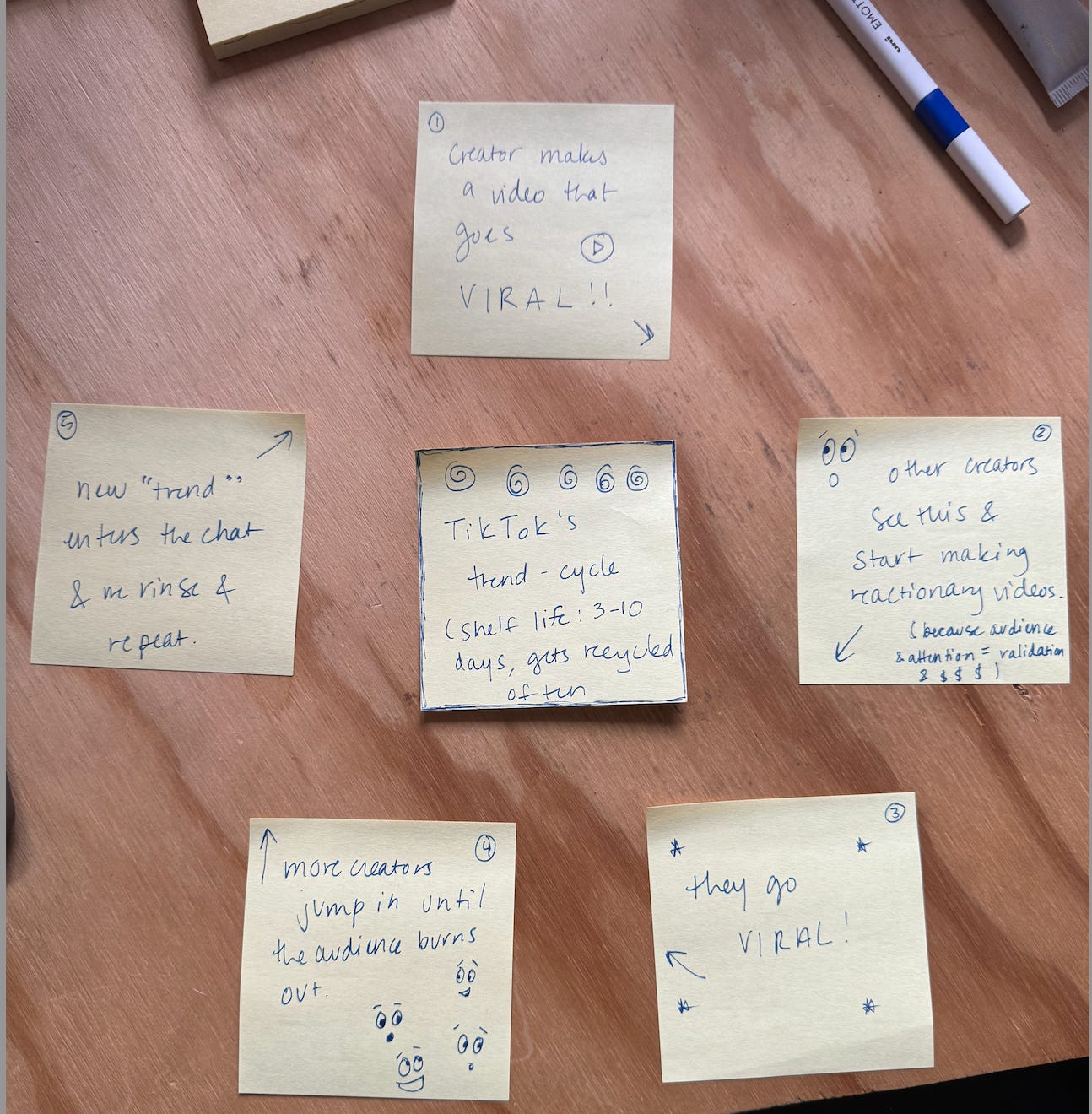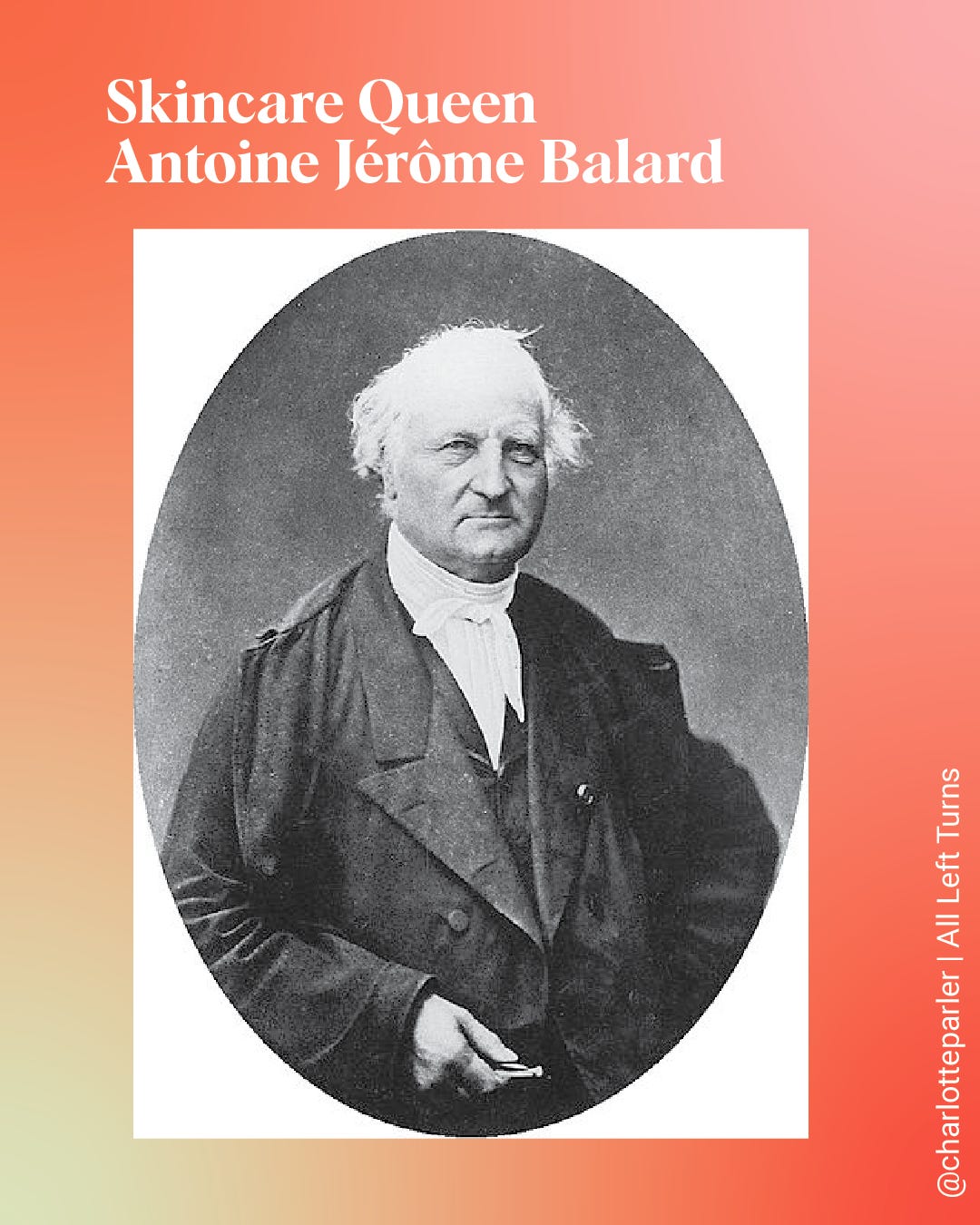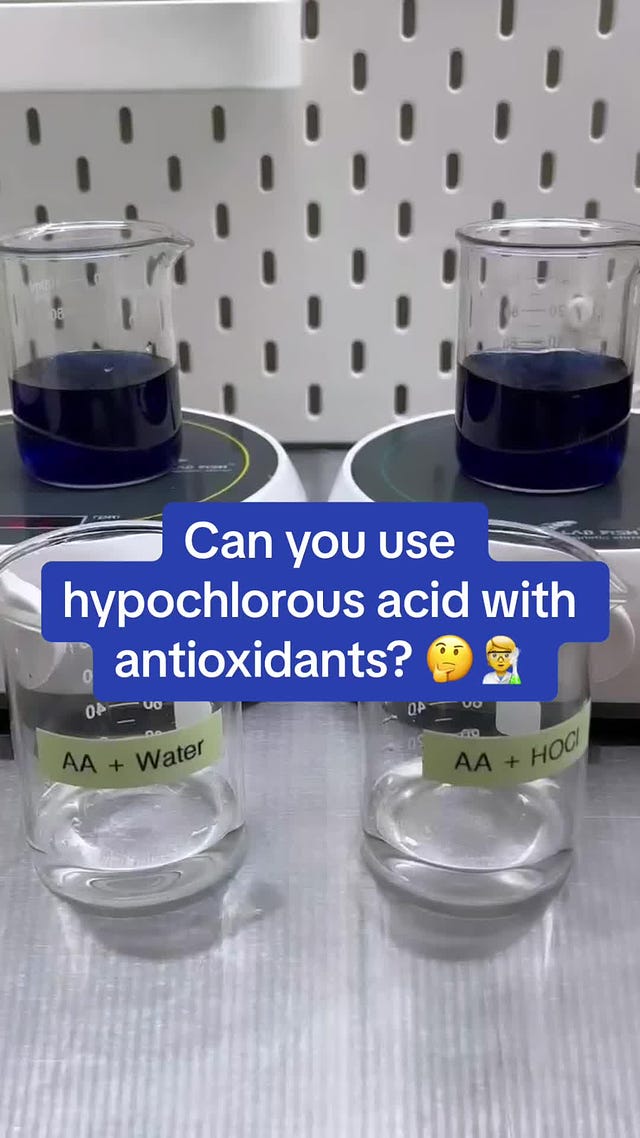Why is Everyone Obsessed With Hypochlorous Acid?
What was originally used for cleaning your eyes and surgery is now the internet's hottest skincare spray. Note: comments are open to everyone!
Opening TikTok is opting in to trend-cycle whiplash. No sooner do you learn how to do #cleangirlmakeup than you need to master #mobwifemakeup while determining whether you’re a #highvisualimpact or #lowvisualimpact girlie. If none of this makes sense to you, I envy your neural synapses peace of mind.
TikTok has determined the cultural discourse for a while now. While previously mocked by media, now the New York Times covers most #trending moments on the app. And thanks to our generation’s QVC, TikTok Shop is subjecting skincare to the same rapid clip of cycling trends.
The trend-cycle goes something like this:
Some products that have gone viral thanks to TikTok and more recently TikTok Shop?
Snail Mucin
Pure Glycerin
Korean Sunscreen
Lately hypochlorous acid has been flooding TikTok Shop with Prequel’s latest launch. Discovered when my great, great grandmother was alive in France in 1834 by the French chemist Antoine Jérôme Balard, hypochlorous acid is what forms when chlorine dissolves in water. Think of it like a diluted very safe bleach.
That diluted bleach helped save a lot of lives. In World War I, when antibiotics didn’t exist, English chemist Henry Dakin and French surgeon Alexis Carrel invented what was called the “Dakin solution” to clean and irrigate wounds. The solution was made from mixing bleach with water. When you mix bleach with water the active ingredient hypochlorous acid is released oxidizes pathogens aka, scramble and destroy them.
Diluted bleach is not the same as buying pure hypochlorous acid (science has improved on the Dakin solution), do not try to make your own hypochlorous acid. Before anyone panics, hypochlorous acid is not only safe to use but incredibly beneficial for certain skin conditions so keep reading and stay calm, you’re not *quite* putting bleach on your face.
First off, what is hypochlorous acid?
The easiest way to think of hypochlorous acid is a very gentle and effective disinfectant. Gentle bleach! It is a weak acid that forms when chlorine dissolves in water. Found naturally in the human body, hypochlorous acid is produced by white blood cells of mammals to fight off infection and disease. The way it does this is through oxidation.
Antioxidants are ingredients that prevent free radical damage to cells. Oxidants, on the other hand, they destabilize them. When the cell is a pathogen or a virus, this is a good thing. Hypochlorous acid is a powerful oxidizing agent which is what makes it so good at disinfecting wounds and your skin. Hypochlorous acid kills things like bacteria through oxidative stress.
So, what are skincare brands selling?
Tower28, in my opinion, is the brand that put hypochlorous acid on the map. Its cute red bottle is instantly recognizable. Brands like Prequel are currently all over TikTok Shop. While Tower28’s spray is pure hypochlorous acid, Prequel claims to have a “pure, stabilized hypochlorous acid, electrolyzed water and soothing mineral concentrate” at a pH of around 4.5.
Like with all ingredients in skincare, how it’s made impacts a few things:
Concentration in your final product.
How long the shelf life is (stability).
pH matters here; some studies have shown hypochlorous acid is most effective at a pH of 3-6 , which aligns with the slightly acidic nature of skin.
Editor’s note: when I note effective pH I’m speaking to stability, not that there were studies that show the pH is good for the skin.
Challenging to say which brand to use. Both are 120mL, Prequel is $11 cheaper. Personally, I like the small bottle of Tower28’s at $12.
Note: no affiliate links are in this article.
Who should be using it?
If you suffer from eye infections, have lash extensions, get a dermatological treatment that leads to skin irritation or have any chronic condition that leads to an impaired barrier, hypochlorous acid (along with a great moisturizer) can be a great addition to your routine.
Why? Clean, moisturized skin heals faster. This is how it’s thought to help with inflammation, your skin is gently cleansed and can repair.
If you have a pimple that exploded so you have an open wound on your face and you want to heal it quickly? Hypochlorous acid, pimple patch on top. You’re cleaning it and giving it a moist environment to heal.
Another great situation to use hypochlorous acid is if you’ve just worked out and need to quickly disinfect your face.
For chronic conditions, you’ll want to use hypochlorous acid more frequently than say, someone like me. I use hypochlorous acid after skin trauma like microneedling treatments or if I’m wearing my mask for long periods of time. The rubbing of the mask on my face chips away at my skin allowing pathogens and bacteria to have a field day. Hypochlorous acid helps my skin not freak out because it kills everything. Important to note that as more research on the microbiome of the skin comes to light, will be interesting to see how much is too much when you’re cleaning your face.
If you have a chronic condition like eczema there are some animal studies that show it’s effective at helping prevent new lesions and reduce itching.
How should I incorporate into my routine?
As it's an oxidizing product, I would not recommend spraying it on your face after your skincare routine. This video from Regimen helps explain.
A basic routine:
Use your hypochlorous acid as the first step in your routine.
Wait.
Apply your water based serums and toners.
Apply your moisturizer.
If using in the morning, apply your sunscreen.
This can apply to a morning and nighttime routine.
If used in the morning you can use hypochlorous acid instead of a facial cleanser. I have dry skin and never wash my face in the morning, sometimes I’ll use hypochlorous acid, most days I splash my face with water.
If you have oily or acne prone skin you may feel the need to wash your face, in which case, hypochlorous acid wouldn’t add much (don’t think it would hurt either).
If you’re using hypochlorous acid throughout the day, consider reapplying sunscreen. For me, I simply want all the antioxidants on my face at all times. I live in New York and take the subway. The air quality makes me rightfully paranoid.
Which brand is best?
Because hypochlorous acid is oxidative, it’s unlikely you’re going to find it in a “formula” with antioxidants. For example, you won’t see a Vitamin C Hypochlorous Acid spray anytime soon.
Some things to think about:
Unless the brand publishes stability, unclear how long the product lasts. Buy smaller bottles and use it! Stockpiling this ingredient doesn’t make sense.
Don’t keep in your car if it gets hot, unless if the brand explains how they keep their solution stable, research shows it can start to degrade at around 77 degrees Fahrenheit.
Buy brands that use dark packaging! Hypochlorous acid is sensitive to light and air. Also avoid bottles that require you to open and close it with each use.
Personally, I love the travel size Tower28. Fits my needs and as I’m an infrequent user it is the perfect size for me to go through quickly. I then reuse the bottles for a glycerin rose water mix I’ll make.
I do want to try Prequel as well since it’s $17 and a reasonable size and has a “soothing mineral concentrate.” The brand is also transparent on process, stability and pH.
Lastly, Tower28 has a serum that has hypochlorous acid in it. Like Prequel’s spray it has Sodium Chloride (salt). When I get my next rosacea flare I can test all these products, until then they’re reasonably priced and in my opinion very low risk to try if you’re curious.
Note: none of these links are affiliate.
Should anyone not use hypochlorous acid?
While I don’t think moderate use of hypochlorous acid will harm anyone’s skin, not everyone needs to gently disinfect their face. Also, using too much hypochlorous acid, well, we just don’t know the impact on skin and microbiome. Moderation tends to be a good rule of thumb.
Now I’m just waiting for the next trend cycle to hit the clock app. Any guesses?








I use Magic Molecule hypochlorus spray on my face after cleansing, as a toner of sorts. I mainly use it b/c I have super-sensitive, eczema- and irritation-prone skin. The jury remains out on whether it actually does anything for me, lol. I previously used the Tower 28 spray and had similar feelings. I figure it can't hurt, though!
We have been using hypochlorous acid for many years before any and all filler and laser procedures. If your skin. Is not thoroughly washed and prepped with this or similar before either procedures don’t do it! It does have a sticky feel and hard to apply other products on top. It’s also used for rosacea blepharitis. I predict this will not be mainstream for very long.